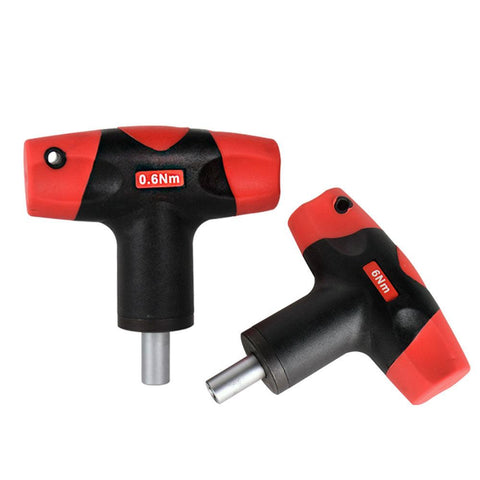In the world of automotive repair, precision is everything. Mechanics rely on a variety of tools to ensure that their work is accurate and reliable, and among the most important is the torque wrench. Torque wrenches are essential for tightening fasteners to the correct specifications, ensuring that components are secured properly without the risk of over-tightening or damaging delicate parts. But with so many options available, what torque wrenches do mechanics typically use to get the job done right?
The most common types of torque wrenches used by mechanics are the click-type, beam-type, and electronic or digital torque wrenches. Each of these tools has its advantages and is suited to different tasks, depending on the mechanic's needs, the type of work being performed, and the level of precision required.
Click-type torque wrenches are by far the most popular choice among mechanics due to their reliability, ease of use, and accuracy. These wrenches are mechanical tools that provide an audible "click" sound when the preset torque value has been reached. The click serves as both a tactile and audible cue for the mechanic to stop applying force, preventing over-tightening and reducing the risk of damaging the fastener or the surrounding components. Click-type wrenches are widely regarded as the best for most automotive applications, from tightening lug nuts on a car wheel to securing engine components. They are available in a variety of ranges, allowing mechanics to select the ideal wrench for the specific torque requirements of their project. The simplicity of use combined with the accuracy they provide makes them an indispensable tool in any professional mechanic's arsenal.
For those who prefer a simpler, no-frills approach, beam-type torque wrenches are another option commonly used, though they are less frequently found in modern workshops. A beam-type wrench consists of a long, slender beam with a pointer that moves across a calibrated scale to indicate the applied torque. While these wrenches do not offer the same feedback mechanism as the click-type wrenches, they are still popular for basic applications due to their low cost and simplicity. The mechanic must read the scale manually, which can be less convenient and accurate than using a click-type wrench, but for less demanding tasks, a beam wrench can be perfectly adequate. Beam-type wrenches are typically favored by hobbyists and for low-volume work where absolute precision isn't as critical.
While both click-type and beam-type wrenches are sufficient for most mechanical tasks, electronic or digital torque wrenches are becoming increasingly popular in high-precision environments, such as performance shops, racing teams, and applications where extremely accurate torque measurements are essential. Digital torque wrenches use sensors to measure applied torque and display the reading on an LCD screen, offering more precision than their mechanical counterparts. Many digital wrenches are equipped with features such as memory storage for preset torque values, audible alerts, and visual indicators that notify the user when the desired torque is reached. These features make digital torque wrenches especially useful in settings where multiple fasteners need to be tightened to exact specifications in quick succession.
Mechanics working with complex assemblies or vehicles that require highly specific torque values will appreciate the higher degree of accuracy that digital torque wrenches provide. They are also easier to read compared to beam-type wrenches, eliminating the need to visually align the scale. However, the trade-off for the increased precision and convenience is that digital wrenches tend to be more expensive and require regular battery changes. They are also sensitive to environmental factors, so proper care must be taken to ensure their continued accuracy.
Another torque wrench variant that mechanics use, though less common, is the hydraulic or pneumatic torque wrench. These wrenches are typically employed in industrial settings or heavy-duty applications, such as for large construction equipment or high-torque applications where immense force is required. Hydraulic torque wrenches use fluid pressure to generate torque, making them ideal for tasks that require very high torque values, often exceeding the range of standard manual wrenches. These tools are typically used in conjunction with heavy-duty machinery, and while they aren't as commonly used in typical automotive repair, they are an important part of the mechanic's toolkit in specific, high-torque environments.
Choosing the right torque wrench depends largely on the type of work being performed. For most general automotive repair, the click-type torque wrench remains the go-to tool for mechanics. It provides the necessary accuracy, convenience, and reliability at an affordable price point. Digital torque wrenches are increasingly favored in performance or precision environments, where utmost accuracy is crucial, and beam-type wrenches can still serve their purpose in simpler, low-stakes tasks.
In addition to the type of wrench, mechanics also pay attention to factors such as the range of the torque wrench and its ease of calibration. Many modern torque wrenches come with a wide torque range, making them versatile enough for various applications, from the relatively low torque required for small fasteners to the higher torque needed for wheel lug nuts and engine components. The ability to calibrate the wrench is also a key consideration, as a well-calibrated wrench ensures that the right amount of force is applied every time.
Ultimately, the best torque wrench for any mechanic depends on their specific needs and the nature of the work they perform. Whether it's the reliable click-type, the simple beam-type, or the high-tech digital model, choosing the right tool ensures that fasteners are torqued accurately and safely, keeping vehicles and machinery in top working condition.

